The 6th Mediterranean International Conference of Pure & Applied Mathematics and Related Areas
(MICOPAM 2023)
Paris, FRANCE, August 23–27, 2023
The 6th Mediterranean International Conference of Pure & Applied Mathematics and Related Areas (MICOPAM 2023) was held as a hybrid event at Université d’Evry in Paris, FRANCE on August 23–27, 2023.
The conference MICOPAM 2023 has been dedicated to Professor Yilmaz SIMSEK on the occasion of the 60th anniversary of his birth.
- To view “Final Version of Conference Schedule”, please click here!
- To view and download the final version of the “Proceedings Book of MICOPAM 2023 (with ISBN: 978-2-491766-01-6)”, please click here!
Photos of MICOPAM 2023
To view and download conference photos taken during MICOPAM 2023, please click here!

To view “Conference Poster”, please click here!
To view “Conference Brochure 1”, please click here!
To view “Conference Brochure 2”, please click here!
Invited Speakers of MICOPAM 2023
(Sorted list alphabetically by speaker’s last name)
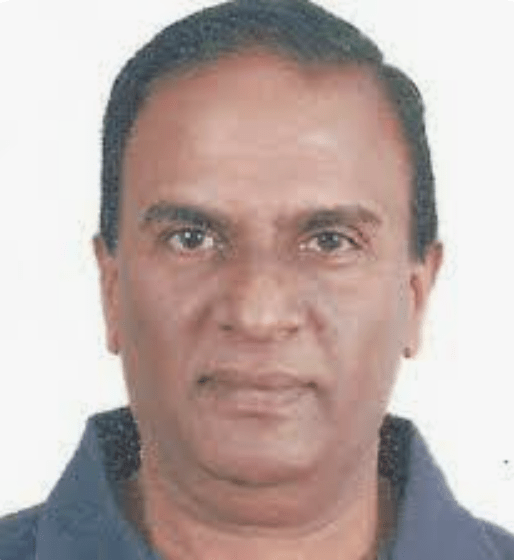
Chandrashekar Adiga, (University of Mysore, India)
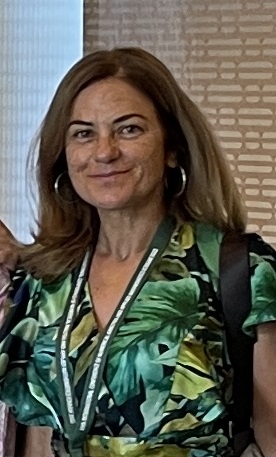
Isabel Cação, (University of Aveiro, Portugal)
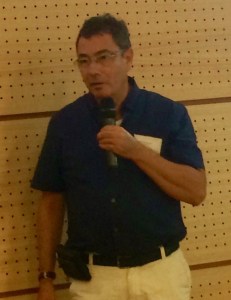
Marc-Antoine Coppo, (Université Nice, France)

Seçil Çeken, (Trakya University, Turkey)
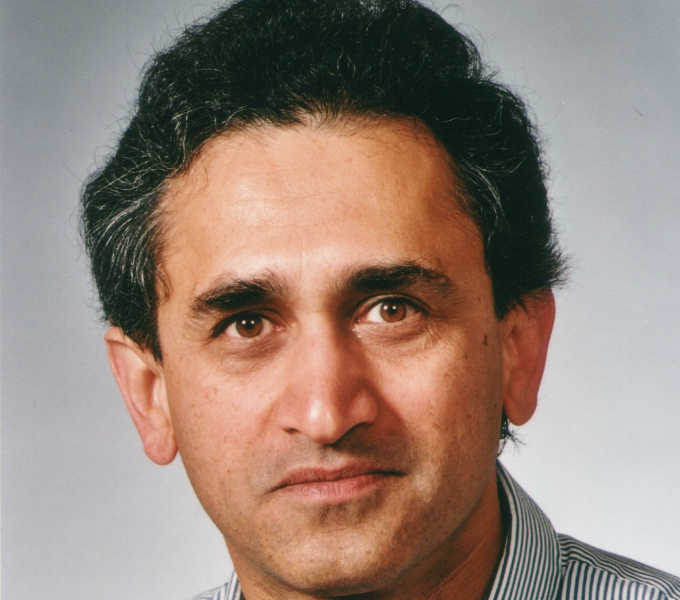
Satish Iyengar, (University of Pittsburgh, USA)
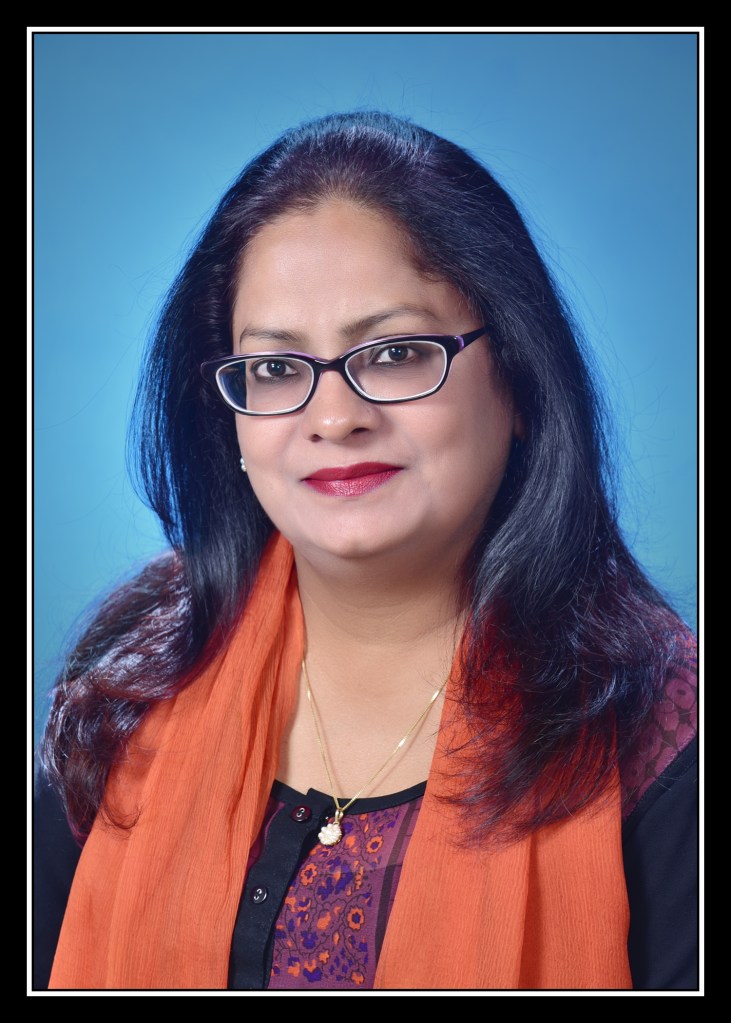
Subuhi Khan, (Aligarh Muslim University, India)
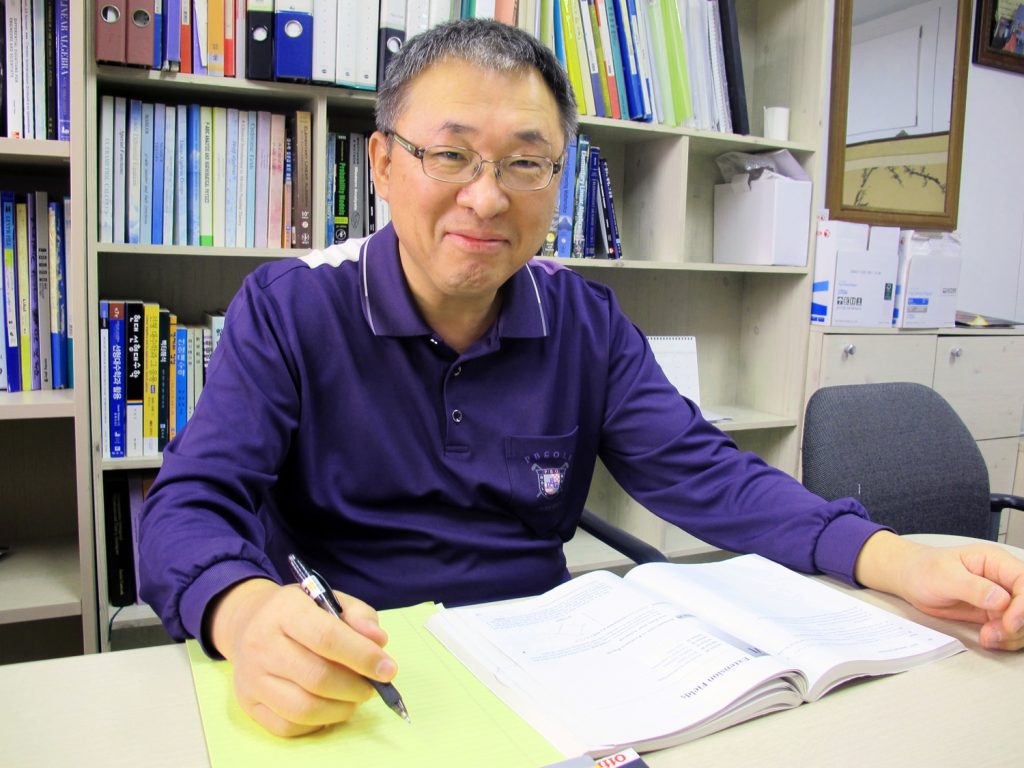
Taekyun Kim, (Kwangwoon University, South Korea)
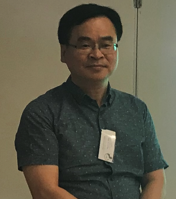
Daeyeoul Kim, (Jeonbuk National University, South Korea)

Rolf Sören Kraußhar, (University of Erfurt, Germany)

Veerabhadraiah Lokesha, (Vijayanagara Sri Krishnadevaraya University, India)
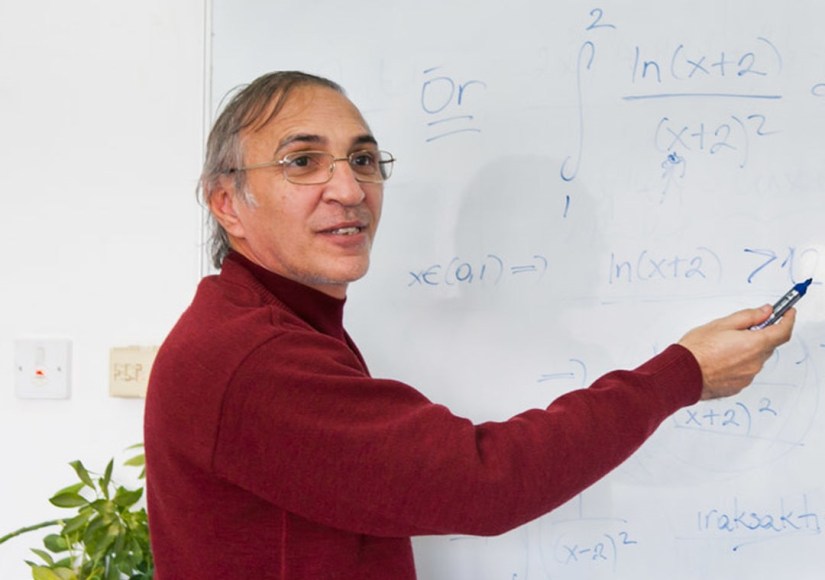
Nazim I. Mahmudov, (Eastern Mediterranean University, Northern Cyprus)
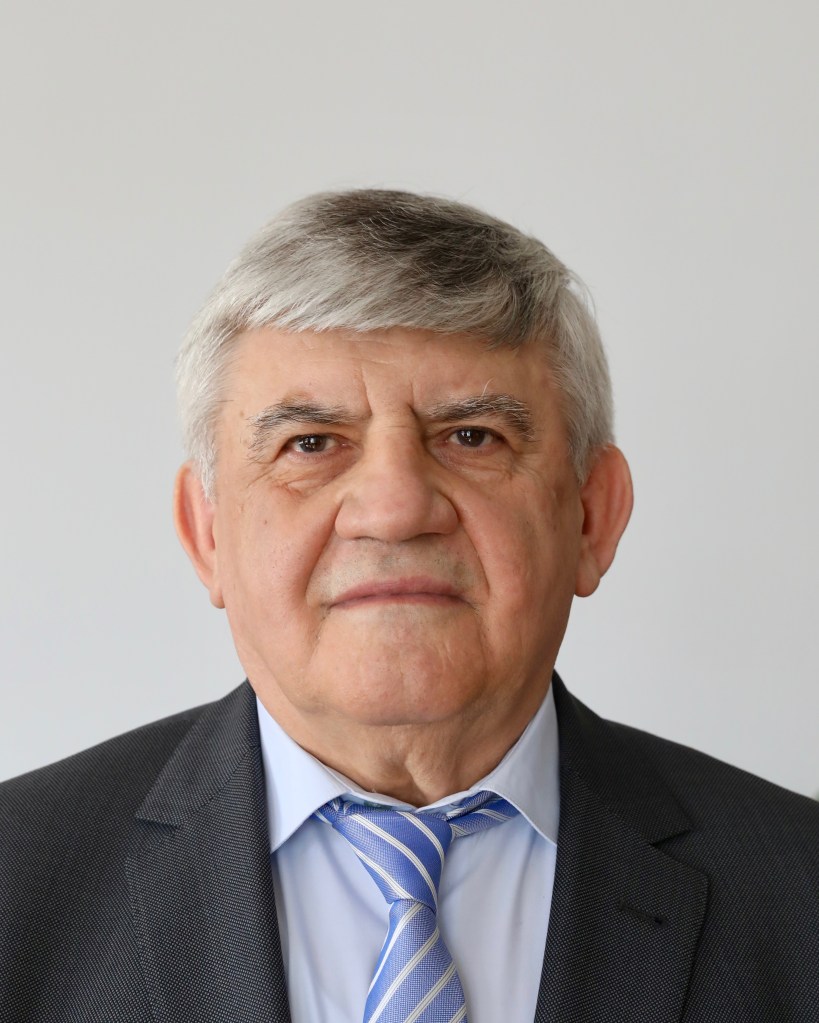
Gradimir V. Milovanović, (Serbian Academy of Sciences and Arts, Serbia)
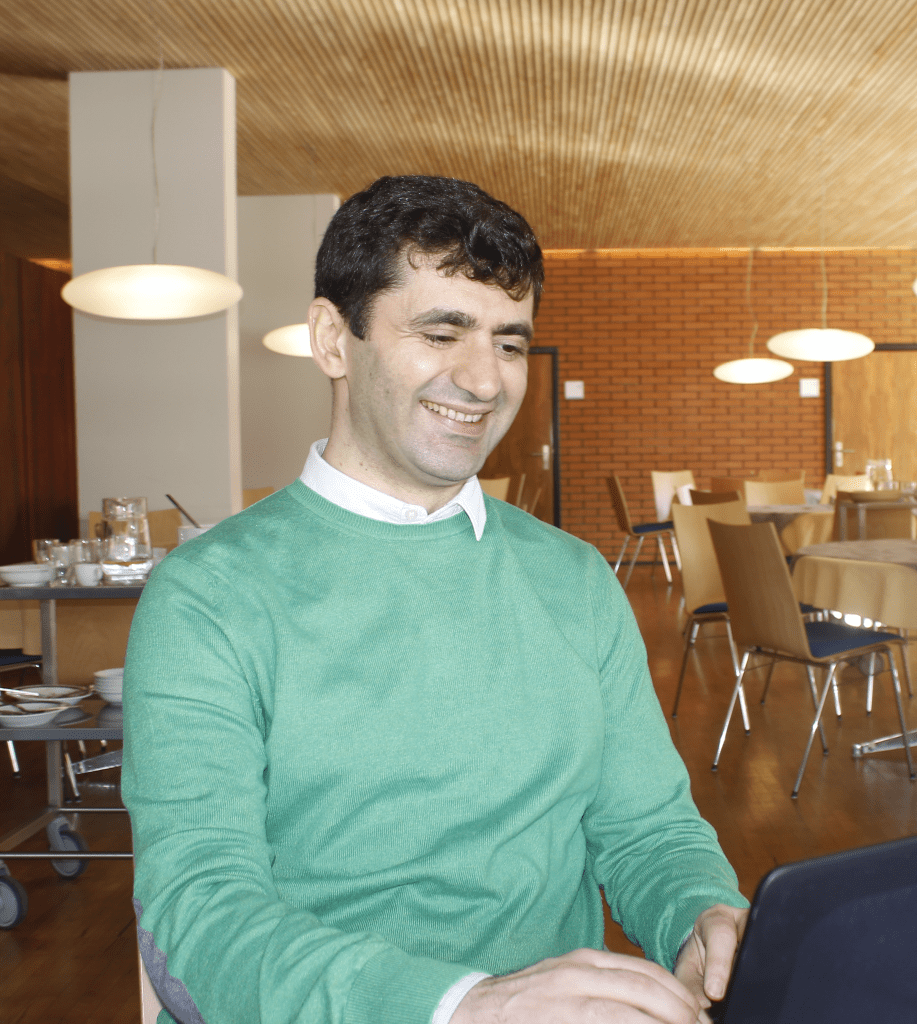
Hussein Mourtada, (Université Paris, France)

Abbas C. Movahhedi, (Université Limoges, France)

Figen Öke, (Trakya University, Turkey)
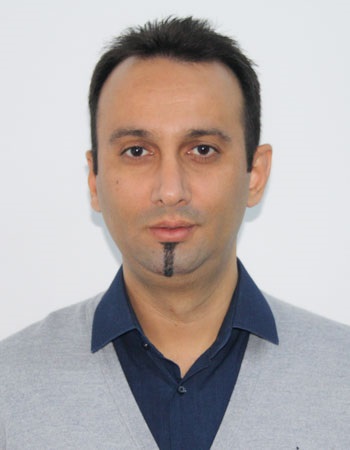
Mehmet Ali Özarslan, (Eastern Mediterranean University, Northern Cyprus)
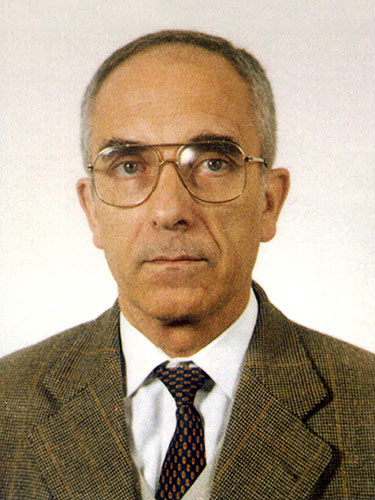
Manuel López-Pellicer, (Universitat Politécnica de Valencia, Spain)
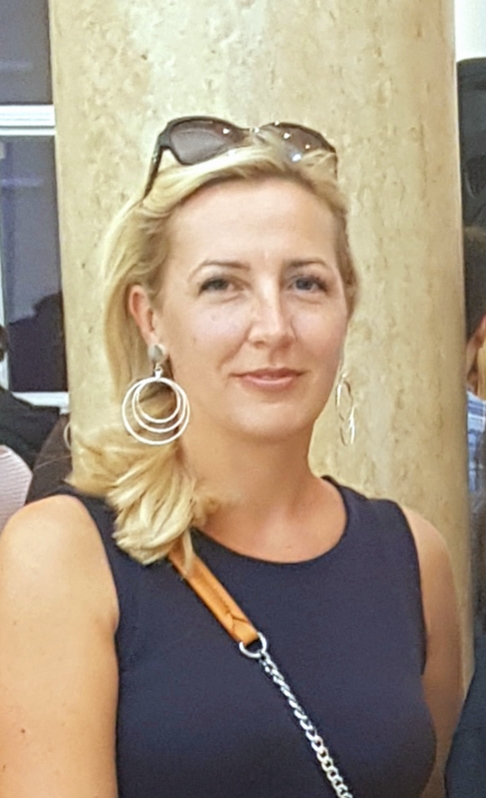
Dora Pokaz, (University of Zagreb, Croatia)
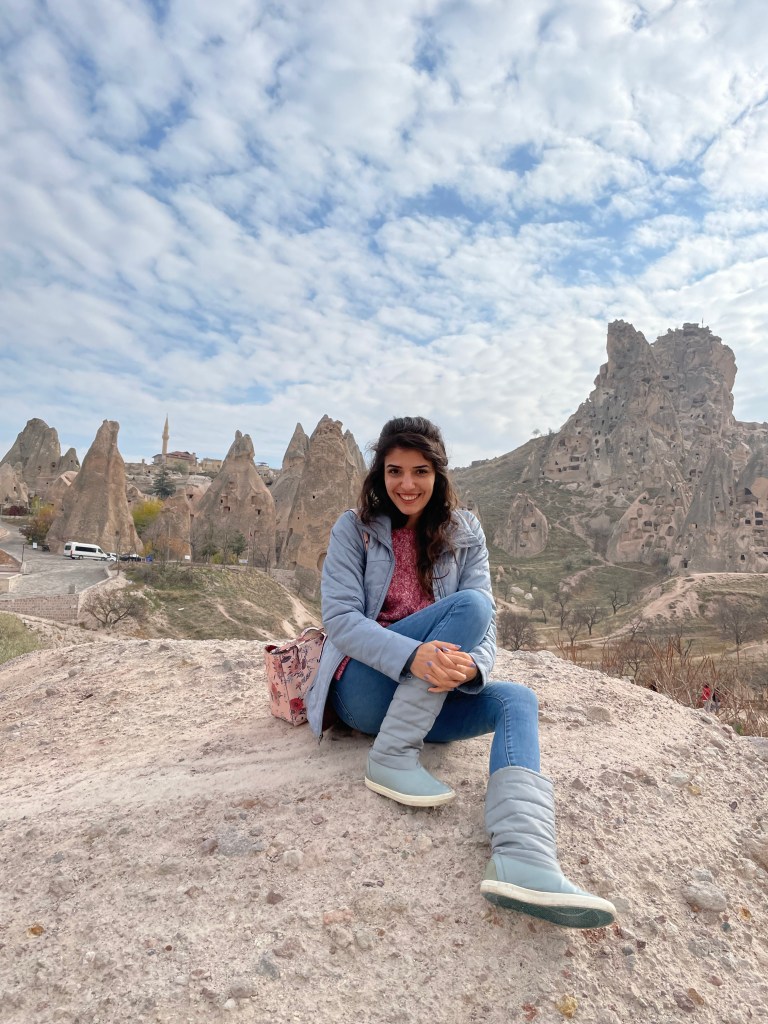
Burcin Simsek, (Bristol-Myers Squibb Company, USA)
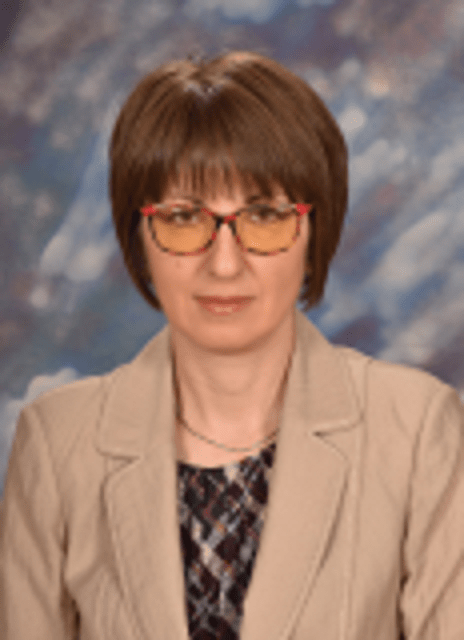
Marija Stanic, (University of Kragujevac, Serbia)
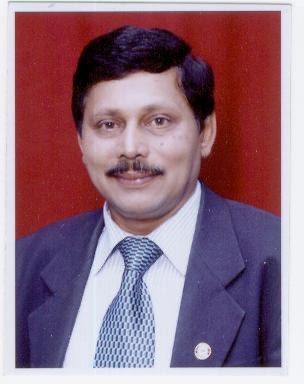
C. K. Subbaraya, (Adichunchanagiri University, India)
Aim and Scope of MICOPAM 2023
The aim of the MICOPAM 2023 conference is to bring together leading scientists of the pure and applied mathematics and related areas to present their research, to exchange new ideas, to discuss challenging issues, to foster future collaborations and to interact with each other.
MICOPAM 2023 conference took place in a hybrid form with Physical and Virtual (Online) participation.
MICOPAM 2023 conference welcomed speakers whose talk or poster contents are mainly related to the following areas:
Committees of MICOPAM 2023
Scientific Committee
- Chandrashekar Adiga, India
- Elvan Akin, USA
- Mustafa Alkan, Turkey
- Abdelmejid Bayad, France
- Naim L. Braha, Republic of Kosova
- Isabel Cação, Portugal
- Nenad Cakić, Serbia
- Ismail Naci Cangul, Turkey
- Seçil Çeken, Turkey
- Ahmet Sinan Cevik, Turkey
- Junesang Choi, South Korea
- Fabrizio Colombo, Italy
- Marc-Antoine Coppo, France
- Dragan Djordjević, Serbia
- Mohand Ouamar Hernane, Algeria
- Satish Iyengar, USA
- Subuhi Khan, India
- Taekyun Kim, South Korea
- Mokhtar Kirane, United Arab Emirates
- Miljan Knežević, Serbia
- Dmitry Kruchinin, Russia
- Nazim I. Mahmudov, Northern Cyprus
- Branko Malešević, Serbia
- Helmuth Robert Malonek, Portugal
- Sabadini Irene Maria, Italy
- Gradimir V. Milovanović, Serbia
- Hussein Mourtada, France
- Abbas C. Movahhedi, France
- Figen Öke, Turkey
- Mehmet Ali Özarslan, Northern Cyprus
- Manuel López-Pellicer, Spain
- Tibor Poganj, Croatia
- Dora Pokaz, Croatia
- Abdalah Rababah, Jordan
- Themistocles Rassias, Greece
- Lothar Reichel, USA
- Ekrem Savas, Turkey
- Yilmaz Simsek, Turkey
- Burcin Simsek, USA
- Miodrag Spalević, Serbia
- Wolfgang Sprößig, Germany
- Hari M. Srivastava, Canada
- Marija Stanić, Serbia
- Richard Tremblay, Canada
International Organizing Committee
- Mustafa Alkan, (Akdeniz University, Turkey)
- Abdelmejid Bayad, (Université d’Evry, France)
- Ayse Yilmaz Ceylan, (Akdeniz University, Turkey)
- Rahime Dere, (Alanya Alaaddin Keykubat University, Turkey)
- Satish Iyengar, (University of Pittsburgh, USA)
- Neslihan Kilar, (Niğde Ömer Halisdemir University, Turkey)
- Daeyeoul Kim, (Chonbuk National University, South Korea)
- Taekyun Kim, (Kwangwoon University, South Korea)
- Irem Kucukoglu, (Alanya Alaaddin Keykubat University, Turkey)
- Dmitry Kruchinin, (Tomsk State University of Cont. Syst. Rad., Russia)
- Nazim I. Mahmudov, (Eastern Mediterranean University, Northern Cyprus)
- Gradimir V. Milovanović, (Serbian Academy of Sciences and Arts, Serbia)
- Ortaç Öneş, (Akdeniz University, Turkey)
- Mehmet Ali Özarslan, (Eastern Mediterranean University, Northern Cyprus)
- Dora Pokaz, (University of Zagreb, Croatia)
Local Organizing Committee
- Busra Al, (Akdeniz University, Turkey)
- Mustafa Alkan, (Akdeniz University, Turkey)
- Abdelmejid Bayad, (Université d’Evry, France)
- Elif Bozo, (Akdeniz University, Turkey)
- Ayse Yilmaz Ceylan, (Akdeniz University, Turkey)
- Rahime Dere, (Alanya Alaaddin Keykubat University, Turkey)
- Damla Gun, (Akdeniz University, Turkey)
- Neslihan Kilar, (Niğde Ömer Halisdemir University, Turkey)
- Irem Kucukoglu, (Alanya Alaaddin Keykubat University, Turkey)
- Nazim I. Mahmudov, (Eastern Mediterranean University, Northern Cyprus)
- Ortaç Öneş, (Akdeniz University, Turkey)
- Mehmet Ali Özarslan, (Eastern Mediterranean University, Northern Cyprus)
- Ezgi Polat, (Akdeniz University, Turkey)
- Buket Simsek, (Akdeniz University, Turkey)
- Fusun Yalcin, (Akdeniz University, Turkey)
Heads of the Organizing Committee
- Abdelmejid Bayad, Committee-in-Chief, (Université d’Evry, France)
- Mustafa Alkan, (Akdeniz University, Turkey)
- Rahime Dere, (Alanya Alaaddin Keykubat University, Turkey)
- Neslihan Kilar, (Niğde Ömer Halisdemir University, Turkey)
- Irem Kucukoglu, (Alanya Alaaddin Keykubat University, Turkey)
- Ortaç Öneş, (Akdeniz University, Turkey)
Editors of the Proceedings Book of MICOPAM 2023
- Abdelmejid Bayad, (Université d’Evry, France)
- Mustafa Alkan, (Akdeniz University, Turkey)
- Irem Kucukoglu, (Alanya Alaaddin Keykubat University, Turkey)
- Ortaç Öneş, (Akdeniz University, Turkey)
Note: During the five days of MICOPAM 2023, its participants made totally 100 oral and poster presentations, and these contributions are respectively affiliated with 22 different countries [Algeria (6), Canada (1), Croatia (3), China (3), France (6), Germany (1), India (6), Iraq (1), Japan (1), Kuwait (1), Northern Cyprus (4), Poland (1), Portugal (1), Romania (1), Russia (4), Saudi Arabia (2), Serbia (2), South Korea (8), Spain (1), Turkey (44), United Kingdom (1), USA (2)].
Participant List of MICOPAM 2023
| Order | First and Last Name | University/Institution | Country | Presentation Type | Presentation Title |
| 1 | Nazim I. Mahmudov | Eastern Mediterranean University | Northern Cyprus | Oral | Discrete time mean-field optimal control problems: Stochastic maximum principle |
| 2 | Manuel López-Pellicer | Universitat Politécnica de Valencia | Spain | Oral | Weakly analytic sets in locally convex spaces |
| 3 | Taekyun Kim | Kwangwoon University | South Korea | Oral | Identities on degenerate hyperharmonic numbers |
| 4 | Fusun Yalcin | Akdeniz University | Turkey | Oral | Recent trends to the problem of heteroscedastity in regression analysis |
| 5 | Melisa Gaygisiz | Akdeniz University | Turkey | Oral | Mathematical model selection in determining the course of infectious diseases |
| 6 | Mevlut Caylak | Akdeniz University | Turkey | Oral | An investigation on last square method in non-linear mathematical models |
| 7 | Yasemin Leventeli | Akdeniz University | Turkey | Oral | An example of predicting mass movements with mathematical models: Suluada-Antalya-Turkey |
| 8 | Berna Cayhan | Akdeniz University | Turkey | Oral | Regression analysis of chemical compound of Hurma region spring water |
| 9 | İmge Özer | Ankara University | Turkey | Oral | Data Minimization in Scientific Research |
| 10 | Caner Atakoğlu | Akdeniz University | Turkey | Oral | Investigation of the Effect of Supply Methods on Fresh Fruit and Vegetable Product Purchase Prices |
| 11 | Emine Şükran Okudan | Akdeniz University | Turkey | Oral | Regression Analysis of Heavy Metal Content of Macroalgae in the Gulf of Antalya |
| 12 | Rolf Sören Kraußhar | University of Erfurt | Germany | Oral | Generating functions for superoscillating functions and recurrence relations |
| 13 | Elif Sukruoglu | Akdeniz University | Turkey | Oral | A note on Generalized Szâsz-Schurer-Baskakov operator with their applications |
| 14 | Mustafa Alkan | Akdeniz University | Turkey | Oral | Palindrome Composition Sets and the patterns |
| 15 | Irem Kucukoglu | Alanya Alaaddin Keykubat University | Turkey | Oral | 1-) Closed-form evaluation of some series involving the Dirichlet characters and the numbers counting Lyndon words 2-) On Peters-type Simsek numbers and polynomials attached to the Dirichlet character |
| 16 | Rahime Dere | Alanya Alaaddin Keykubat University | Turkey | Oral | Some relations for the Pidduck Polynomials |
| 17 | Mehmet Ali Özarslan | Eastern Mediterranean University | Northern Cyprus | Oral | On the approximation to fractional calculus operators with multivariate Mittag-Leffler function in the kernel |
| 18 | Ömer Halil Çolak | Akdeniz University | Turkey | Oral | Wavelet-based analysis of the effect of electrode positions on the sEMG spectrum |
| 19 | Esra Süzen | Akdeniz University | Turkey | Oral | Analyze of EEG and Eye-Tracking on Tennis HEC Training |
| 20 | Nilay Selma Şavklıyıldız | Akdeniz University | Turkey | Oral | Effect of vector control algorithms on motor types |
| 21 | Ayhan Şavklıyıldız | Akdeniz University | Turkey | Oral | Frequency domain normalizations of EEG signals |
| 22 | Özge Özer Atakoğlu | Akdeniz University | Turkey | Oral | Using Multivariate Statistical Analyzes in Geochemical Data: Example of Lead-Zinc Deposit |
| 23 | Dmitriy Dolgy | Kwangwoon University and Far Easterm Federal University | South Korea and Russia | Oral | Interval decision-making problems |
| 24 | Daeyeoul Kim | Jeonbuk National University | South Korea | Oral | Iterated sociable number and stable numbers |
| 25 | Dae San Kim | Sogang University | South Korea | Oral | Stirling numbers associated with sequences of polynomials |
| 26 | Seçil Çeken | Trakya University | Turkey | Oral | S-versions of some module theoretic concepts |
| 27 | Burcin Simsek | Bristol-Myers Squibb Company | USA | Oral | Model selection for protein copy numbers in populations of microorganism |
| 28 | Dora Pokaz | University of Zagreb | Croatia | Oral | Generalizations of the Hardy type inequality via new Green functions and interpolating polynomials |
| 29 | Marija Stanic | University of Kragujevac | Serbia | Oral | Anti-Gaussian quadrature rules related to polynomials orthogonal on the unit semicircle |
| 30 | Figen Öke | Trakya University | Turkey | Oral | Extensions of valuations with greater rank |
| 31 | Isabel Cação | University of Aveiro | Portugal | Oral | On Vietoris convolution triangles |
| 32 | Hye Kyung Kim | Daegu Catholic University | South Korea | Oral | Degenerate Trigonometric functions arising from p-adic integrals on Zp |
| 33 | Gradimir V. Milovanović | Serbian Academy of Sciences and Arts | Serbia | Oral | Complex orthogonality on the semicircle and numerical integration and differentiation |
| 34 | Subuhi Khan | Aligarh Muslim University | India | Oral | Umbral convolutions of hypergeometric functions |
| 35 | C. K. Subbaraya | Adichunchanagiri University | India | Oral | Convective Heat Transfer in an Enclosure in the Presence of a Magnetic Field |
| 36 | Mihaela Ribičić Penava | University of Osijek | Croatia | Oral | Generalizations of Euler-Grüss type inequalities |
| 37 | Buket Simsek | Akdeniz University | Turkey | Oral | Wavelet-based analysis of the effect of electrode positions on the sEMG spectrum (Joint work with Ömer Halil Çolak) |
| 38 | Abdelkader Lakmeche | Sidi Bel-Abbes University | Algeria | Oral | Leukemia disease model |
| 39 | Dae Sik Lee | Daegu University | South Korea | Oral | Degenerate q-derangement numbers and polynomials |
| 40 | Elif Çetin | Manisa Celal Bayar University | Turkey | Oral | Generalized Simsek Sums and Related Certain Family of Finite Sums |
| 41 | Mohamed Helal | Sidi Bel-Abbes University | Algeria | Oral | Mathematical analysis for a time delay model of Alzheimer’s disease |
| 42 | Qiu-Ming Luo | Chongqing Normal University | People’s Republic of China | Oral | The dissections and modular equations for the Ramanujan-Selberg continued fraction |
| 43 | Fares Alazemi | Kuwait University | Kuwait | Poster | Wasserstein bounds in the CLT of the MLE for the drift coefficient of a stochastic partial differential equation |
| 44 | Yilmaz Simsek | Akdeniz University | Turkey | Oral | On the relations derived from consideration of generating functions for sum of higher powers of inverse binomial coefficients |
| 45 | Chandrashekar Adiga | University of Mysore | India | Oral | S. Ramanujan – The Mathematician and his Legacy |
| 46 | Satish Iyengar | University of Pittsburgh | USA | Oral | Inference for first passage times of the Feller process |
| 47 | Erkan Agyuz | Gaziantep University | Turkey | Oral | A note on the recent development of Positive-Linear Operators Involving Special Polynomials |
| 48 | Ayşe Yılmaz Ceylan | Akdeniz University | Turkey | Oral | A new approach to deriving identities for the dual Bernstein basis functions |
| 49 | Damla Gün | Akdeniz University | Turkey | Oral | Relations of exponential Euler spline associated with special numbers and polynomials |
| 50 | Ezgi Polat | Akdeniz University | Turkey | Oral | Some certain families of special polynomials derive from linear matrix form of transformation the using of rational numbers |
| 51 | Elif Bozo | Akdeniz University | Turkey | Oral | Formulas derived from relationships between derangement numbers and the Peters-type Simsek numbers of the second kind |
| 52 | Mohammed Abeidallah | Higher School of Management-Tlemcen | Algeria | Oral | Spatial data case: conditional hazard estimate by the local linear method |
| 53 | Abdullah Kablan | Gaziantep University | Turkey | Oral | Fractional periodic discontinuous Sturm-Liouville problem with eigenparameter in the boundary condition |
| 54 | Bayram Bala | Gaziantep Islamic Science and Technology University | Turkey | Oral | Direct and inverse discrete Sturm-Liouville problems with finitely many points of discontinuity |
| 55 | Beyza Çetin | Akdeniz University | Turkey | Oral | A Boubaker matrix method for solving higher-order differential equations with constant coefficients |
| 56 | Simge Yılmaz | Akdeniz University | Turkey | Oral | Charlier polynomial solutions of Lane-Emden differential equations |
| 57 | Özlem Karaağaçlı | Akdeniz University | Turkey | Oral | Dickson collocation method to solve first-order differential equations which variable delays |
| 58 | Rükan Genç Altürk | Mersin University | Turkey | Oral | Nanomaterial Design for Engineering Applications |
| 59 | Ahmet Altürk | Amasya University | Turkey | Oral | Boundary Handling for Biorthogonal Wavelets |
| 60 | İsmail Uğur Tiryaki | Abant İzzet Baysal University | Turkey | Oral | On a sequence of positive linear operators related to squared-Durrmeyer operators |
| 61 | Şüayip Yüzbaşı | Akdeniz University | Turkey | Oral | A new approximation method for Multi-Pantograph type delay differential equations using Hermite polynomials |
| 62 | Gamze Yıldırım | Akdeniz University | Turkey | Oral | A collocation method based on Lerch polynomials for solving the Hantavirus infection model |
| 63 | Zelal Temel | Van Yuzuncu Yil University | Turkey | Oral | Second-Order Numerical Method for Solving Singularly Perturbed Volterra Integro-differential Equation |
| 64 | Mahesh Kumar | Sardar Vallabhbhai National Institute of Technology | India | Oral | Approximate solution to Riemann problem arising in hyperbolic conservation equation |
| 65 | Mehnaz Haneef | Aligarh Muslim University | India | Oral | Degenerate general bivariate Appell polynomials: Properties and Applications |
| 66 | Andreea Fulga | Transilvania University of Brașov | Romania | Oral | Some fixed point theorems in super-metric space |
| 67 | Mansoor H. Alshehri | King Saud University | Saudi Arabia | Poster | Investigation of copper filled carbon nanotubes |
| 68 | Mohamed Djemaa Sadoun | University of Sciences and Technology Houari Boumediene (USTHB) | Algeria | Oral | On inference in generalized integer-valued GARCHX models with structural changes |
| 69 | Chouaib Khattou | Ecole Normale Supérieure de Kouba | Algeria | Oral | Some arithmetic properties of Bernoulli numbers of higher orders |
| 70 | Dilek Söylemez Özden | Selçuk University | Turkey | Oral | Some results for Bernstein type rational operators |
| 71 | Fatemah Mofarreh | Princess Nora bint Abdul Rahman University | Saudi Arabia | Oral | Ruled surfaces in spacetime case characterized by a stationary disteli-axis |
| 72 | Neslihan Kilar | Niğde Ömer Halisdemir University | Turkey | Oral | 1-) Identities on Simsek numbers: Approach to generating functions with Faà di Bruno’s formula 2-) Observations on asymptotic expressions for combinatorial Simsek numbers |
| 73 | Nohyun Kim | Jeonbuk National University | South Korea | Oral | Convolution sums involving restricted divisor functions for coprime conditions |
| 74 | Gyehwan Jo | Jeonbuk National University | South Korea | Listener | — |
| 75 | Soungdouk Lee | Jeonbuk National University | South Korea | Oral | Some formula by convolution sums and the inverse divisor functions for coprime conditions |
| 76 | Laura Ciupala | Transilvania University of Brașov | Romania | Oral | Some fixed point theorems in super-metric space (Joint work with Andreea Fulga) |
| 77 | Hussein Mourtada | Université Paris | France | Oral | Integer partitions, graphs and monomial ideals |
| 78 | Marc-Antoine Coppo | Université Nice | France | Oral | Bendersky-Adamchik constants, hyperfactorial functions, and Ramanujan summation of divergent series |
| 79 | Frank Vega | NataSquad | France | Oral | 1-) On Solé and Planat criterion for the Riemann Hypothesis 2-) NP on Logarithmic Space |
| 80 | Aynur Keskin Kaymakci | Selçuk University | Turkey | Oral | Further Properties of a*-I-Open Sets and a*-I-Continuity |
| 81 | Neda Lovričević | University of Split | Croatia | Oral | Taylor interpolation formula and Jensen-type inequalities’ improvements |
| 82 | İlkay Onbaşı Elidemir | Eastern Mediterranean University | Northern Cyprus | Oral | On ω-(p,q) Sturm-Liouville Problem and Their Orthogonal Solutions |
| 83 | Ertan Akacan | Eastern Mediterranean University | Northern Cyprus | Oral | ((p,q)ω)-Hahn Difference Operator and Some Important Characterizations |
| 84 | Omar Y. Khattab | General Directorate of Education First ALkarkh | Iraq | Oral | giα-Expansion Mappings in Topological Spaces |
| 85 | Veerabhadraiah Lokesha | Vijayanagara Sri Krishnadevaraya University | India | Oral | Focus on Connectivity indices and its impact |
| 86 | Ryotaro Okazaki | Doshisha University | Japan | Oral | An application of Hermite Interpolation in Explicit Equation of Algebraic Curves |
| 87 | Busra Al | Akdeniz University | Turkey | Oral | Compositions of integers whose each part is smaller than a positive integers |
| 88 | Mohamed Mehbali | London South Bank University | United Kingdom | Oral | A Hybrid Genetic Algorithm for the Three-index Assignment Problem |
| 89 | Lahcen Oussi | Wroclaw Universty | Poland | Oral | Remarks on Degenerate Simsek Numbers |
| 90 | Yonghyeon Jeon | Hongik University | South Korea | Oral | Order reduction mitigating predictor-corrector strategy for fractional differential equations |
| 91 | Sunyoung Bu | Hongik University | South Korea | Oral | Order reduction mitigating predictor-corrector strategy for fractional differential equations (Joint work with Yonghyeon Jeon) |
| 92 | Sofiane Abdelhamid Atmani | Université des Sciences et de la Technologie Houari -Boumediène | Algeria | Oral | Ramanujan Congruences for partition functions associated with Eta quotients modulo prime numbers |
| 93 | Louis Auffret | France | France | Oral | Catalan, Fuss-Catalan and Raney numbers: Generic combinatorial interpretation and extended definition |
| 94 | Jun Cao | Toronto Metropolitan University | Canada | Oral | Mathematical modeling and numerical simulation on tornado dynamics |
| 95 | Eylem Öztürk | Hacettepe University | Turkey | Oral | On Brief History and certain aspects of Cahn-Hilliard Equations |
| 96 | Chen Xuan | Xi’an Jiaotong-Liverpool University | China | Oral | The maths of a photo induced hydrogel swimming robot: nonsmooth forcing dynamics |
| 97 | Dmitry Kruchinin | Tomsk State University of Control Systems and Radioelectronics | Russia | Oral | Some Properties of the Faber Polynomials |
| 98 | Yuriy Shablya | Tomsk State University of Control Systems and Radioelectronics | Russia | Oral | 1-) Bijection between simple directed lattice paths and AND/OR tree structures 2-) Relationship between combinatorial sets, generating functions and combinatorial generation algorithms |
| 99 | Abdelmejid Bayad | University of Evry | France | Oral | Partitions Functions and Zetas Functions |
| 100 | Mounir Hajli | Shanghai Jiao Tong University | China | Oral | On the theory of zeta functions and their applications |
Submitting Full Manuscripts to the supporting journals of MICOPAM 2023
Dear Participants of MICOPAM 2023,
We are thankful for your participation in the conference. You are now invited to submit your manuscripts (compatible with the scope and publication policy of the journals) for peer review and possible publication to the supporting journals.
Remark that full manuscripts must have a different title and different abstract from the studies presented in MICOPAM 2023.
Moreover, if your manuscript is derived from the studies presented in MICOPAM 2023, it is recommended you to add the following statement to the “Acknowledgement” section of your manuscript.
- Some parts of this paper have been presented at “The 6th Mediterranean International Conference of Pure & Applied Mathematics and Related Areas (MICOPAM 2023)” held in Paris, France on August 23–27, 2023.
In addition, since the conference MICOPAM 2023 has been dedicated to Professor Yilmaz SIMSEK on the occasion of the 60th anniversary of his birth, it is recommended that you add the following statement to the “Acknowledgement” section of your manuscript:
- This paper is dedicated to Professor Yilmaz SIMSEK on the occasion of his 60th anniversary.
Supporting journals and their submission rules
To the attention of those who will submit their manuscripts to the supporting journal “Montes Taurus Journal of Pure and Applied Mathematics (MTJPAM)”:
- Manuscripts will be reviewed by at least two referees.
- The Montes Taurus Journal of Pure and Applied Mathematics (MTJPAM) is free of charge.
- In order to submit your manuscript to the following journal, please send an e-mail (including a cover letter, PDF file, TeX file and Figure files (if any) of your manuscript) to the journal e-mail address: mtjpamath@gmail.com. By considering that x represents the participant number (see: the Participant List of MICOPAM 2023), with the following code:
- MICOPAM2023mtjpam-x
- The above code should be specified in both the cover letter and the content of the submission mail. For example, if you are 82nd in the participant list and you want to submit an article to the MTJPAM, you must submit your article with the code MICOPAM2023mtjpam-82.
- Manuscripts must be submitted no later than 30 June, 2024 and a registration number must be obtained before the relevant date.
- For more details, please visit the website of the journal:
- Montes Taurus Journal of Pure and Applied Mathematics (ISSN: 2687-4814) – [Indexed in Elsevier – Scopus Database, Index Copernicus International (ICI Journals Master List), Google Scholar, Semantic Scholar, CiteFactor, Journal Factor (JF), General Impact Factor (GIF), and Index Copernicus International (ICI World of Journals)]
To the attention of those who will submit their manuscripts to the following supporting journal: “Proceedings of the Jangjeon Mathematical Society (PJMS)”:
- Manuscripts will be reviewed by at least two referees.
- In order to submit your manuscript to the journal: “Proceedings of the Jangjeon Mathematical Society (PJMS)”, please send an e-mail (including a cover letter, PDF file, TeX file and Figure files (if any) of your manuscript) to the conference e-mail address: micopam2018@gmail.com.
- Manuscripts must be submitted no later than 30 May, 2024 and a registration number must be obtained before the relevant date.
- For more details, please visit the website of the journal:
- Proceedings of the Jangjeon Mathematical Society (ISSN: 1598-7264) – [Indexed in Scopus]
To the attention of those who will submit their manuscripts to the following supporting journal: “Advanced Studies in Contemporary Mathematics (ASCM)”:
- Manuscripts will be reviewed by at least two referees.
- In order to submit your manuscript to the journal: “Advanced Studies in Contemporary Mathematics (ASCM)”, please send an e-mail (including a cover letter, PDF file, TeX file and Figure files (if any) of your manuscript) to the conference e-mail address: micopam2018@gmail.com.
- Manuscripts must be submitted no later than 30 May, 2024 and a registration number must be obtained before the relevant date.
- For more details, please visit the website of the journal:
- Advanced Studies in Contemporary Mathematics (ISSN: 1598-7264) – [Indexed in Scopus]
To the attention of those who will submit their manuscripts to the supporting journal “Gazi University Journal of Science Part A: Engineering and Innovation”:
- Manuscripts will be reviewed by at least two referees.
- The Gazi University Journal of Science Part A: Engineering and Innovation (GUJSA) is free of charge.
- Submit your manuscript via the system of the journal available at
https://dergipark.org.tr/en/login. The content of your submission should include a cover letter, PDF file, TeX file and Figure files (if any) of your manuscript). By considering that x represents the participant number (see: the Participant List of MICOPAM 2023), the following code:- MICOPAM2023gujsa-x
- should be specified in both the cover letter. For example, if you are 82nd in the participant list and you want to submit an article to the GUJSA, you must submit your article with the code MICOPAM2023gujsa-82.
- Manuscripts must be submitted no later than 30 February, 2024 and a registration number must be obtained before the relevant date.
- For more details, please visit the website of the journal:
- Gazi University Journal of Science Part A: Engineering and Innovation (e-ISSN: 2147-9542) – [Indexed in TR DİZİN, Index Copernicus (ICI) , SOBIAD, Directory of Research Journals Indexing (DRJI), Academic Resource Index (RESEARCHBIB), ASOS Index (ASOS), Scientific Indexing Services, Info Base Index, Google Scholar]
To the attention of those who will submit their manuscripts to the supporting journals “Journal of Inequalities and Special Functions (JIASF)”, “Journal of Mathematical Analysis (JMA)” or “Bulletin of Mathematical Analysis and Applications (BMATHAA)”:
- Manuscripts will be reviewed by at least two referees.
- For their accepted manuscripts, 30% discount on the Publication Charge will be available for the authors who attended MICOPAM 2023. The authors will make their own payments directly to the journal. The article of the author who does not pay the fee to the journal for the accepted articles will not be published by the journal. The MICOPAM organizing committee is not responsible for this.
- In order to submit your manuscript to one of the supporting journals: “Journal of Inequalities and Special Functions”, “Journal of Mathematical Analysis” or “Bulletin of Mathematical Analysis and Applications”, please send an e-mail (including a cover letter, PDF file, TeX file and Figure files (if any) of your manuscript) to the conference e-mail address: micopam2018@gmail.com. By considering that x represents the participant number (see: the Participant List of MICOPAM 2023), one of the following codes:
- MICOPAM2023jiasf-x
- MICOPAM2023jma-x
- MICOPAM2023bmathaa-x
- should be specified in both the cover letter and the content of the submission mail, depending on which journal the author wants to send an article to. For example, if you are 82nd in the participant list and you want to submit an article to the Journal of Mathematical Analysis, you must submit your article with the code MICOPAM2023jma-82.
- Manuscripts must be submitted no later than 30 May, 2024 and a registration number must be obtained before the relevant date.
- For more details, please visit the website of the journals:
- Journal of Inequalities and Special Functions (ISSN 2217-4303) – [Indexed in Web of Science (WoS) by Emerging Sources Citation Index (ESCI), Mathematical Reviews (MathSciNet) Zentralblatt fur Mathematik, and EBSCO] (30% discount on the Publication Charge will be available for all attendees of MICOPAM 2023)
- Journal of Mathematical Analysis (ISSN 2217-3412) – [Indexed in Web of Science (WoS) by Emerging Sources Citation Index (ESCI), Zentralblatt, Mathematical Reviews (MathSciNet), EMIS, and Google Scholar] (30% discount on the Publication Charge will be available for all attendees of MICOPAM 2023)
- Bulletin of Mathematical Analysis and Applications (ISSN 1821-1291) – [Indexed in Web of Science (WoS) by Emerging Sources Citation Index (ESCI), Zentralblatt, Mathematical Reviews (MathSciNet), EMIS, and Google Scholar] (30% discount on the Publication Charge will be available for all attendees of MICOPAM 2023)
To the attention of those who will submit their manuscripts to the supporting journal “Journal of Classical Analysis (JCA)”:
- Manuscripts will be reviewed by at least two referees.
- Submissions are free of charge during 2023. That is, during 2023 there is no Article Processing Charge (APC) for the accepted papers in the Journal of Classical Analysis (JCA). Therefore the Special Issue will be also organized in this manner. Therefore, we advice the auhtors to submit their manuscripts before the end of 2023 and take a registration number must before the relevant date.
- In case the journal requests Article Processing Charge (APC) for the accepted submissions made after the end of 2023, the authors whose articles are accepted will make their payments directly to the journal. The article of the author who does not pay the fee to the journal for the accepted articles will not be published by the journal. The MICOPAM organizing committee is not responsible for this.
- Articles should be submitted to the journal with the following code:
- MICOPAM2023jca-x
- by considering that x represents the participant number (see: the Participant List of MICOPAM 2023). For example, if you are 82nd in the participant list and you want to submit an article to the “Journal of Classical Analysis (JCA)”, you must submit your article with the code MICOPAM2023jca-82.
- For more details, please visit the website of the journal:
- Journal of Classical Analysis (ISSN 1848-5979) – [Indexed in Mathematical Reviews (MathSciNet)] (Submissions are free of charge during 2023. That is, during 2023 there is no Article Processing Charge (APC) for the accepted papers in the Journal of Classical Analysis (JCA). Therefore the Special Issue will be also organized in this manner).